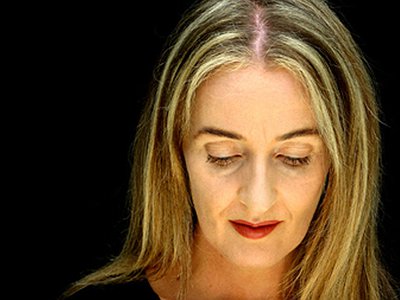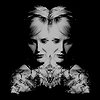When did you start writing/producing music - and what or who were your early passions and influences?
I started singing first and then discovered the piano accordion at around twelve years of age. It was then that I realised that I could compose my own music to sing to, the Yang Chin came next which is a Chinese Dulcimer, between the two instruments and my voice I was able to find all that I needed to bond with my musical vision. One thing lead to another and I met Brendan Perry, we took up a partnership of writing and performing under the name of Dead Can Dance and developed our production skills while writing songs with keyboards that were in turn recorded for our albums.
What do you personally consider to be the incisive moments in your artistic work and/or career?
Realising that with music we could create a bridge between the human heart and the soul that desired to communicate the things that come innately from being inspired. The move to London was pivotal to exploring new things to be inspired by, access to libraries and old poetic things. I have never thought of music as a career, although when I started to write music for cinema things became more structured on the material side of working.
What are currently your main compositional- and production-challenges?
It would be staying cutting edge with technology.
What do you usually start with when working on a new piece?
These days it almost always starts with a string of sounds on the keyboards, even if I end up translating the strings into another sound later. Acoustic guitar samples are fun to write with.
How strictly do you separate improvising and composing?
For me everything is borne from improvising.
How do you see the relationship between sound, space and composition?
The only way I think I can answer that is to say that music wakes up something in my heart that connects me to things differently. I wake up my imagination and it takes me on a journey.
Do you feel it important that an audience is able to deduct the processes and ideas behind a work purely on the basis of the music? If so, how do you make them transparent?
The way you approach the work is very personal to each musician. I’m not really sure that each person's process is important. It's the music that transports and delivers you to a place where you feel more alive.
In how much, do you feel, are creative decisions shaped by cultural differences – and in how much, vice versa, is the perception of sound influenced by cultural differences?
Yes, I do feel from experience that by exposing yourself to different music from around the world, you grow ideas on how to communicate from those influences, inspiring a much greater palette from which you can express yourself.



